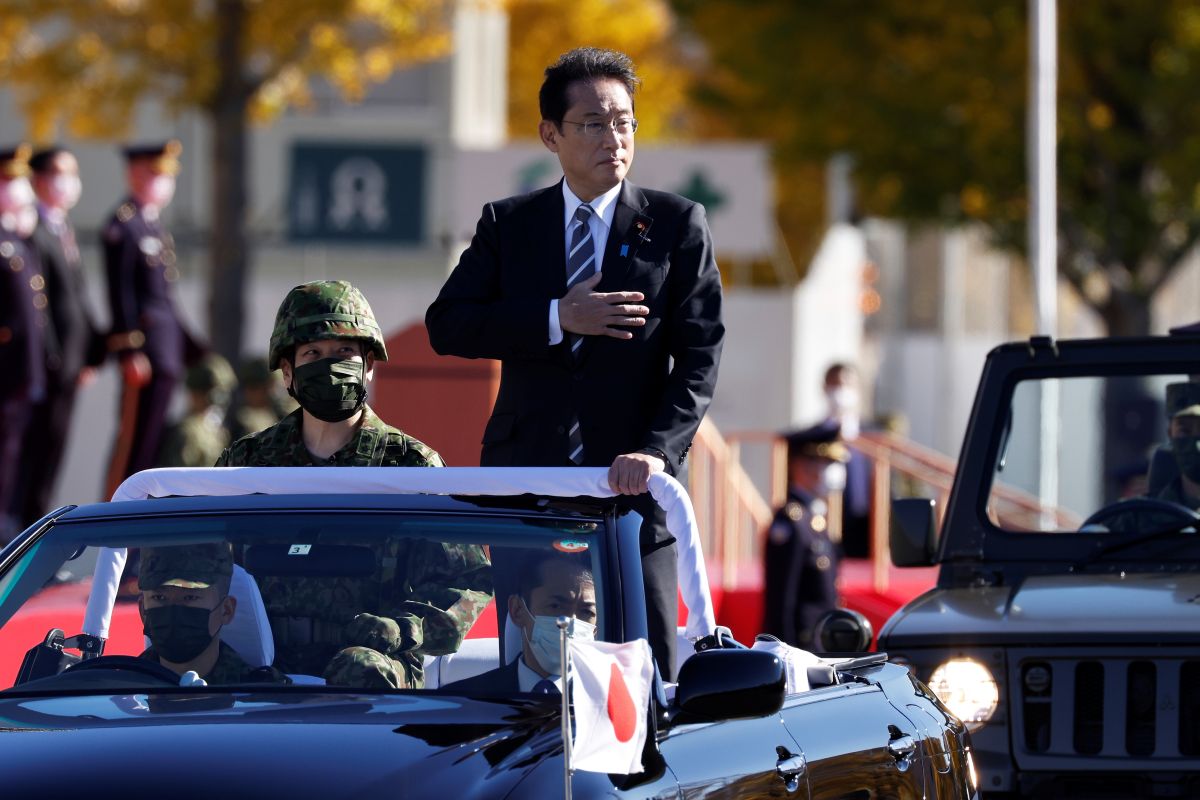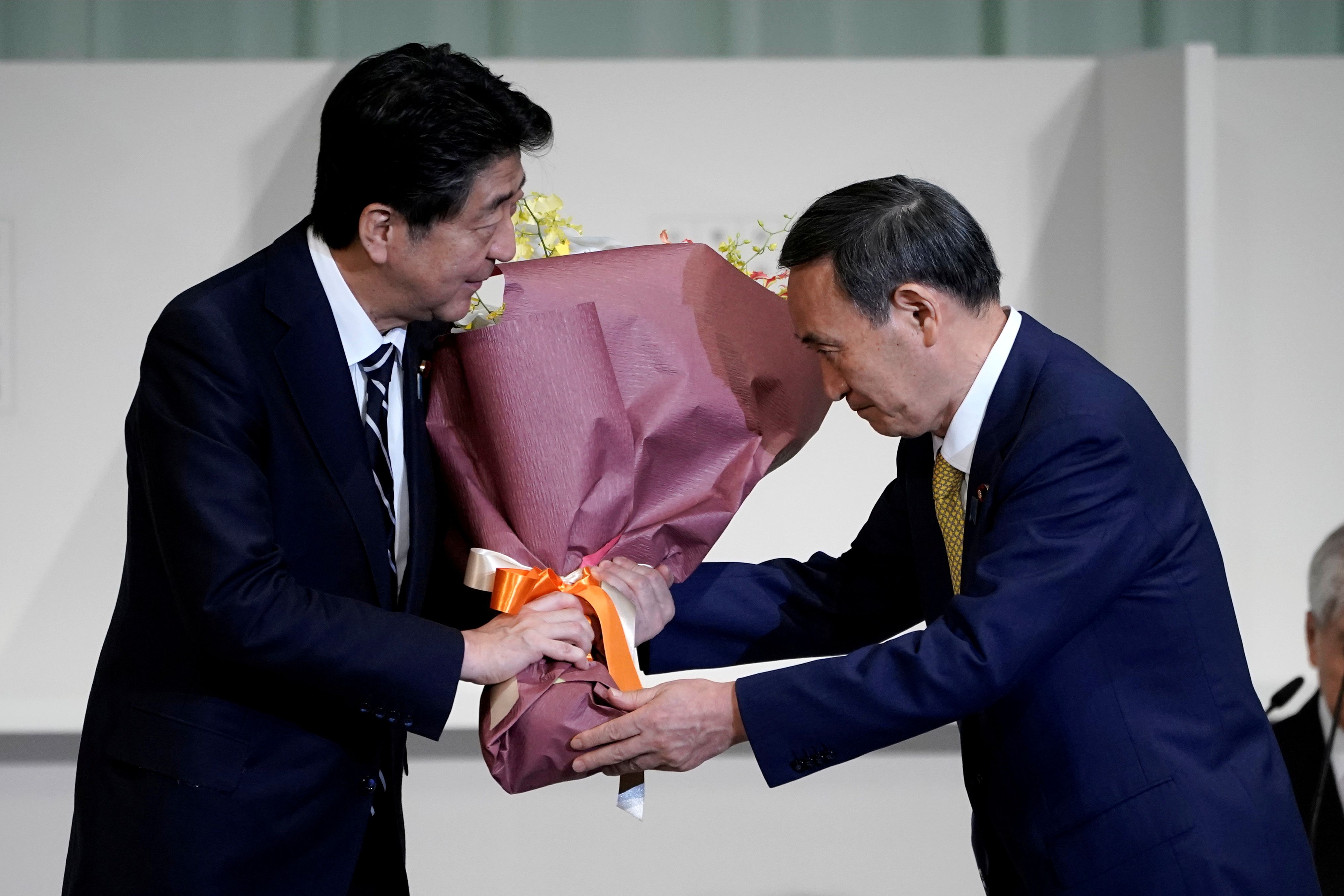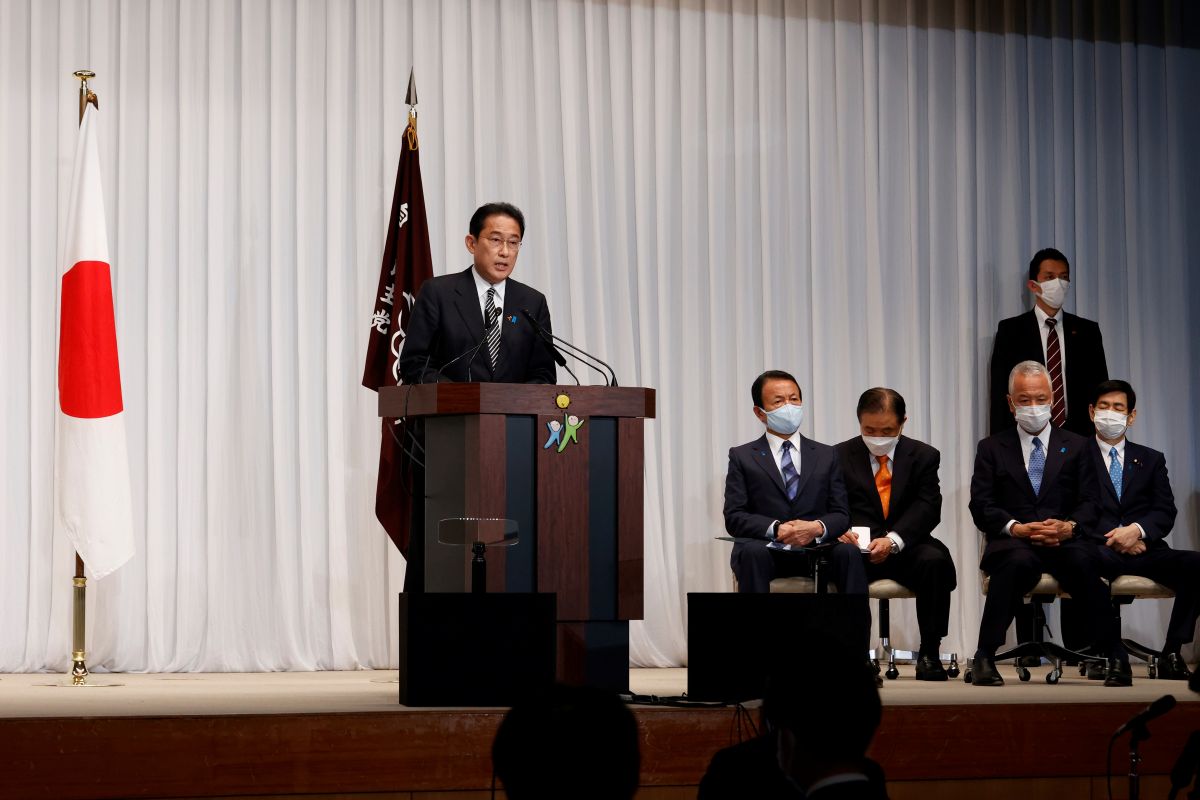Japan's Foreign Policy Under Kishida
The government of Prime Minister Kishida Fumio, formed on 10 November, will continue the foreign policy of his predecessors Abe Shinzō and Suga Yoshihide. In response to China’s regional policy, Japan intends to develop its military potential and deepen cooperation with the U.S. and other partners, including European, in the Indo-Pacific. At the same time, Kishida will strive for stable relations with China and trade liberalisation in the region out of Japan’s own economic interest. The new government’s focus on the country’s internal socioeconomic problems will be conducive to maintaining the current course in foreign policy.
 Fot. POOL/ Reuters/FORUM
Fot. POOL/ Reuters/FORUM
On 10 November 10, Kishida was elected Japan’s prime minister by parliament after his Liberal Democratic Party (LDP) with its coalition ally Kōmeitō won the October elections to the House of Representatives. The politician, leading the moderate Kōchikai faction within LDP, obtained the support of party hawks, including the largest Seiwakai faction, headed by former prime minister Abe. In order to gain leadership in the party, Kishida adopted Abe’s views, according to which Japan should strengthen its defence capabilities and take a more proactive approach to security policy. These voices are gaining prominence in the ruling elites in view of Japan’s deteriorating security environment. The most disturbing issues are Chinese military activities in the Taiwan Strait and in the South and East China seas, including around the Senkaku/Diaoyu islands, claimed by both Japan and China. An increasing problem for Japan is its economic challenges related to, among others, the instability of global supply chains and China’s unfair trade practices. In addition to the modernisation of the Chinese armed forces, the development of North Korea’s military potential is challenging Japan’s security. This occurs within the context of military build-ups in the region, visible for example through the prism of the missile arms race and defence cooperation by AUKUS, among others.
Plans in Foreign and Security Policy
These challenges induce the new government to develop Japan’s military potential. Kishida has approved an increase in defence spending that will reach a record $53.2 billion in the current fiscal year (up 15% from the previous year and exceeding 1% of Japan’s GDP). The increased spending is on the development of air and missile defence, strengthening air reconnaissance, naval forces and improving the financial situation of the domestic defence firms. Kishida also signals the possibility that Japan will acquire missile capabilities to strike at hostile enemy bases, with North Korea and China in mind. The Japanese prime minister announced that the National Security Strategy of 2013 will be updated and the National Defence Programme Guidelines and Medium-Term Defence Programme will be renewed. Kishida is also considering accelerating work on a revision of the constitution, including its Article 9, prohibiting Japan from having armed forces.
In response to regional challenges, especially China’s policy, Kishida’s government intends to continue implementing Abe’s vision of a “free and open Indo-Pacific”. For this purpose, Japan will deepen its alliance with the U.S., develop cooperation within the Quad (with the U.S., Australia, and India), with ASEAN and European countries (especially the UK, France, and Germany). In response to the Chinese economic and technological challenges, Kishida established a Ministry of Economic Security to deal with issues such as the diversification of supply chains and protection of Japanese technologies. A more assertive approach to China may be foreshadowed by the growing influence of Abe within the LDP. As a result, Takaichi Sanae, an associate of the former prime minister, became chair of the Political Research Council, an important decision-making body within the LDP. The government also established the role of prime minister’s adviser on human rights issues, and named Nakatani Gen to this position. The appointment of a former defence minister to work on legislation to impose sanctions on states that violate human rights may indicate coming tougher criticism of China’s policies on Hong Kong and Xinjiang. On the other hand, the appointment of Hayashi Yoshimasa, an experienced politician from the Kishida’s dovish faction and former head of the nonpartisan Japan-China Parliamentarians’ Friendship League, as new minister of foreign affairs is a positive signal sent to China.
Challenges
The implementation of Kishida’s plans in foreign and security policy will be hindered by budget constraints and disputes within the ruling coalition. To increase support for the ruling party ahead of the July 2022 elections to the House of Councillors, Kishida’s government will focus on socioeconomic issues. The Japanese government intends to pursue a wealth redistribution policy (including by raising the minimum wage) in order to reduce inequality, and it will implement further stimulus packages to promote economic growth. Another problem will be the attitude of the coalition party Kōmeitō, which prefers to increase spending on social issues and education rather than on defence.
Finding a balance in Japan’s approach to China will be the most serious regional challenge for the new government in its foreign policy. It seems Kishida’s foreign policy towards China will combine elements of confrontation and a soft course. On the one hand, the Japanese government declares greater support for Taiwan, supporting its accession to the Comprehensive and Progressive Agreement for Trans-Pacific Partnership (CPTPP) and the World Health Organisation (as an observer). Like his predecessor Suga Yoshihide, Kishida signals the possibility of involving Japan in the Taiwan Strait emergency, but without specifying what form it would take. The construction of a chip factory in Japan by Sony and the Taiwanese company TSCM promises deeper technological cooperation. On the other hand, the need to improve the economic situation prompts Japan to maintain stable relations with China. It remains Japan’s key trade and investment partner, and its role may increase with the Regional Comprehensive Economic Partnership (RCEP), which will enter into force in January 2022. The situation is complicated by the fact that China, like Taiwan, has also applied to join the CPTPP, which is a free-trade framework on which Japan hopes to increase its economic power in the region. Moreover, Japan’s actions to strengthen the CPTPP remain limited as it has failed to convince the U.S. to join the trade pact. An additional problem remains the tense relations between Japan and South Korea, which also weaken the trilateral dialogue with the U.S.
Conclusions and Perspectives
Kishida’s government will continue Japan’s foreign policy to date. It will be a compromise between the expectations of party hawks, led by Abe, and the more dovish views of the prime minister, foreign minister, and the coalition partner Kōmeitō. Until the upper house elections next summer, Kishida’s government will focus on rebuilding the economy. After the elections, it may intensify activities in the security dimension, including accelerating the increase in defence spending in coming years to come close to the 2% of GDP target suggested by the hawks. The government will probably present a new National Security Strategy in autumn next year that will specify the direction of changes in security policy. To successfully amend the constitution, the government will be required to clarify the nature of the changes and build broad support for the required referendum on the revision with a public that remains divided on this issue.
A test of Kishida’s policy towards China will be how Japan responds to the situation in the Taiwan Strait. Abe’s statements suggest that Japan would support the U.S. militarily if it involved an emergency stemming from China’s actions against Taiwan’s security. These words were used to put political pressure on China and to gauge its reaction. At the same time, the assertive rhetoric of the former prime minister will be softened by Kishida and Hayashi, who will strive to maintain stable relations with China because of the economic interests.
European countries, including EU members, remain attractive partners for Japan in implementing the vision of a “free and open Indo-Pacific”, also in the security dimension. As Japan is indicated as one of the key partners in both the EU’s Indo-Pacific strategy and the British, French, and German strategies, one of the areas of European-Japanese cooperation will be maritime security, especially how to secure sea routes. This should be achieved through intensifying and broadening the scope of joint exercises and manoeuvres, pursuing dialogue between the officials of defence ministries, exchanging information and strengthening the cooperation between defence industries. Dialogue on security issues, including in cyberspace, will be also one of the areas of cooperation between Poland and Japan, mentioned in an action plan for the implementation of the Polish-Japanese strategic partnership in 2021–2025, signed in May this year.





